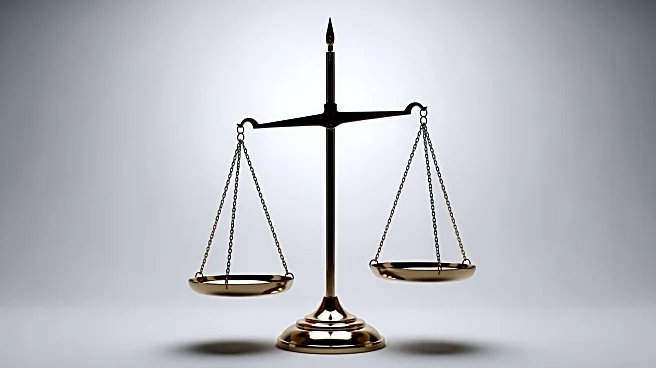What's Happening?
New York Attorney General Letitia James' grandnieces have been charged with a total of eight felonies and three misdemeanors over the past five years, yet have consistently seen their charges reduced or dismissed. Cayla Thompson-Hairston, one of the grandnieces,
faced felony charges in April 2024 for allegedly falsifying her criminal record when attempting to purchase a firearm. Despite her violent history, these charges were dropped. Additionally, Thompson-Hairston was arrested for grand larceny in June last year but pleaded guilty to misdemeanor petit larceny, receiving a suspended sentence and unsupervised probation. Her sister, Nakia Thompson, has a similar history of legal troubles, including grand larceny and assault charges, but has also seen her charges reduced. The properties owned by James in Norfolk, Virginia, where her relatives reside, are under federal investigation, with James facing potential prison time due to alleged mortgage document fraud.
Why It's Important?
The repeated downgrading or dismissal of charges against Letitia James' relatives raises questions about the judicial process and potential preferential treatment. This situation could impact public trust in the legal system, especially given James' high-profile position as New York's Attorney General. The federal investigation into James' properties and the allegations of mortgage fraud could have significant political ramifications, potentially affecting her career and public perception. The case also highlights broader issues of accountability and transparency within the justice system, particularly concerning individuals with connections to influential figures.
What's Next?
The ongoing federal investigation into Letitia James' properties may lead to further legal actions, potentially affecting her political career. As scrutiny intensifies, there may be calls for more transparency and accountability in how legal cases involving public figures and their relatives are handled. The situation could prompt discussions on judicial reform and the need for consistent application of the law, regardless of personal connections. Stakeholders, including political leaders and civil society groups, may react by advocating for changes in legal procedures to ensure fairness and integrity.
Beyond the Headlines
The case involving Letitia James' relatives underscores ethical concerns about the influence of personal connections in legal proceedings. It raises questions about the balance between mercy and justice, and whether the legal system adequately addresses repeat offenders. The situation may also reflect broader societal issues, such as the challenges faced by individuals with criminal records in reintegrating into society. Long-term, this case could contribute to discussions on legal reforms aimed at ensuring equitable treatment for all individuals, regardless of their affiliations.















